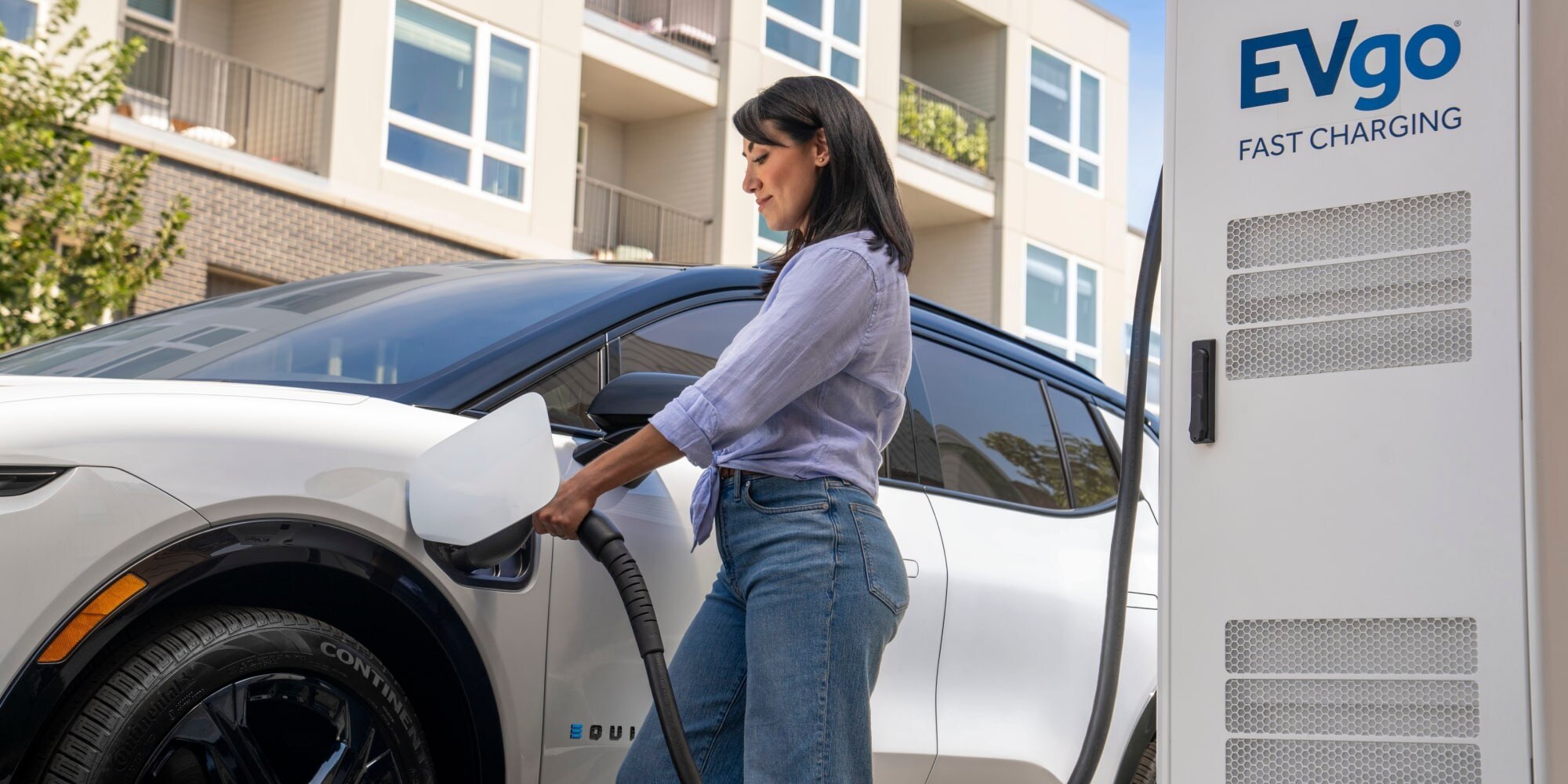

When you own an electric vehicle (EV), one of the primary considerations is deciding how to charge it. Public charging stations are available, but they can get expensive over time. If you use your EV regularly, charging it at home is a good option. However, before doing so, there are some essential questions. What type of charger should you use? How much will it cost? What is the most efficient option? These are just a few of the questions EV buyers often ask us. Our Victorville Chevrolet dealership experts can help you with some answers.
Benefits of Charging Your Chevrolet EV at Home
The primary reason to charge your Chevy EV at home is cost savings. Most public charging stations require a fee, which can reduce the overall savings compared to refueling a gas-powered vehicle. While you'll still have to pay for the electricity used to charge your EV, you won't have to worry about additional costs such as charging network membership fees or hourly rates for public chargers.
Another bonus is flexibility. You don't have to worry about whether the charging stations are full, nor will you need to extend your commute to find one. Simply plug your vehicle into the charger when you get home, and it'll be ready for your next trip. You might also benefit from lower energy prices during off-peak times, allowing you to charge your car at a reduced cost.
The benefits of home charging are significant. According to the Department of Energy, EV owners report charging over 80% of the time at home.
Types of Home Charging Options
There are two main types of home charging: Level 1 and Level 2. A Level 1 charger uses a standard power outlet and is the slowest way to charge an EV. Depending on your vehicle type, it may not be practical. For example, if you have an all-electric car such as the Chevrolet Bolt, charging it with a Level 1 charger could take several days. However, if you have a plug-in hybrid, a Level 1 charger can effectively recharge the battery overnight. The advantage of this type of charger is that you won't have to invest in installing additional equipment.
Level 2 charging requires installing an EV charger in your home. Level 2 chargers replenish your battery faster than a standard household power outlet. For instance, you can charge an average plug-in hybrid vehicle in a couple of hours, and a new Equinox EV or Silverado EV could be fully charged overnight with a Level 2 charger. Level 2 charging ports also have built-in safety features that aren't available with a standard power outlet.
Installing a Level 2 charger at home requires an electrician. The charging port can be mounted in your garage or on the side of your house. However, you need to link it to your interior electricity system. The installation cost varies, but typically, you'll pay between $1,000 and $1,500.
Selecting and Installing a Home Charger
If you install a home charger, there are several things to consider. First, there's the issue of where you'll install your charger. If you regularly park your car outside, you'll need a weather-proof charger. You should also have one with a locking mechanism to guard against theft or unauthorized use. Another factor is the cable length you'll need. Most range from 12 to 24 feet, so you'll want to choose a location close enough to your parking spot for the port.
Then, there's the issue of the speed of your charging port. Level 2 chargers generally provide power ranging from just over 3 kilowatts to 9.4 kilowatts, indicating how much energy they can supply to your vehicle. Some vehicles have a limit to their charging speed, often around 7 or 8 kilowatts. So you'll want to make an informed decision based on these numbers. If your EV can't take advantage of it, there's no point in investing in a higher-powered charger.
To calculate how long your charger will take to replenish your EV, divide your battery's kWh rating by the power of your charging station. For example, if you have a 70 kWh battery in your truck and a 7-kilowatt EV charger, you'll need 10 hours for a full charge.
Some charging ports offer advanced features that may interest you, such as remote controls and the ability to schedule charging times. These features can help you monitor charging performance and reduce energy costs.
Optimal Charging Level
Charging your EV to approximately 80% instead of 100% is advisable, as consistently avoiding a full charge can help extend your battery's life span. Similarly, you should avoid allowing your battery to deplete to 0% too frequently, which can negatively impact its longevity.
Learn More About Chevrolet EVs at Victorville Chevrolet
Are you interested in learning more about home charging for your Chevy or our range of Chevrolet EVs? Feel free to reach out to our team of Chevy experts here in Victorville, California. Alternatively, you can browse our selection of electric cars online and schedule a test-drive when you find the right vehicle.